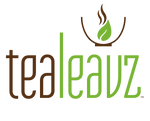Confessions of a Coffee Addict: Is It a Healthy Addiction?

“I had to give up coffee.”
Why?
Because it’s an addiction.
But is it a healthy addiction? That’s the question that keeps caffeine lovers awake at night — quite literally.
The Start of a Love Affair
It started innocently enough — one small cup in the morning. A little ritual, warm and comforting, that made me feel human again.
The aroma alone could lure me out of bed, promising productivity and focus. I’d sip slowly, savoring that first hit of caffeine as it coursed through my veins.
Suddenly, the day didn’t seem so daunting. Deadlines? Manageable. Motivation? Flowing.
Then came the second cup. And the third.
At some point, I realized I wasn’t starting my day with coffee — coffee was starting me.

The Science Behind the Buzz
Caffeine isn’t just a drink ingredient; it’s a drug. A mild stimulant that blocks adenosine, the neurotransmitter responsible for making you feel tired. The caffeine intake from a simple cup of regular coffee triggers the release of dopamine, your brain’s natural motivator.
That combination explains why coffee feels so good — and why it’s so addictive. Over time, your brain builds tolerance, demanding higher amounts of caffeine to achieve the same alertness.
A single morning cup stops working, so you add another. Then one after lunch. Before long, you’re consuming 400 mg of caffeine a day (or more). Wonder why your heart feels like it’s running a marathon at 3 p.m.?
The irony? The caffeine content in coffee boosts our energy level — until it doesn’t. After every spike comes the inevitable crash, leaving us foggy, cranky, and reaching for yet another cup.

When “I Need Coffee” Becomes a Red Flag
I used to joke that coffee ran through my veins. You hear coffee drinkers say “Don’t talk to me until I’ve had my coffee,” clutching their mug like a lifeline.
But when you can’t function without something, it’s no longer a preference — it’s dependency.
My wake-up call came during a particularly stressful week. I was averaging five cups of coffee a day — dark roast, extra strong.
The side effects? I felt wired, anxious, and perpetually exhausted. My sleep was wrecked, my stomach was in knots, and even my skin looked dull.
That’s when I realized: this wasn’t fuel anymore. It was control.
So I did the unthinkable — I quit coffee.
“I Had to Give Up Coffee” — The Withdrawal Phase
The first few days were brutal.
Headaches. Fatigue. Irritability. The works. It felt like my body was staging a protest against its own recovery.
But after a week or two, something amazing happened. My energy stabilized. My anxiety eased. My sleep improved — deep, restful, dream-filled sleep that I hadn’t experienced in years.
And perhaps most surprisingly, I didn’t miss drinking coffee as much as I thought I would.
I’d been chasing a high that coffee had stopped giving me a long time ago.

The Emotional Addiction: More Than Caffeine
Part of coffee’s grip is emotional, not just chemical.
There is something deeply comforting about the ritual. The grinding of coffee beans. The aroma filling the kitchen. the warmth of the mug in your hands. It’s a small act of mindfulness — a pause before the day begins.
When I gave it up, I didn’t just lose caffeine; I lost that ritual. That’s when I realized I didn’t need to quit the routine — I just needed to change what was inside the cup.
Finding Balance in the Cup: Why Tea Became the Better Habit
When looking for healthy coffee alternatives, I turned to tea. I expected less energy with tea instead of coffee — but what I found was better energy.
Unlike coffee, which hits hard and fades fast, tea provides a smoother, more sustained lift. That’s thanks to L-theanine, a naturally occurring amino acid found in tea leaves that promotes calm focus. It balances the stimulating effect of caffeine, giving you steady alertness without the crash.
In other words, tea gives your brain energy with grace.
Green Tea: Calm Focus and Gentle Energy
Green teas like Sencha Green Tea or Jasmine Pearls deliver just enough caffeine to wake you up. They contain about a third of what’s in coffee — with added antioxidants that support overall wellness.
The result? Mental clarity that lasts all morning without the jitters.
For those easing off coffee, green tea is the perfect morning companion: bright, grassy, and good for both brain and body.
Matcha: The Mindful Upgrade
Matcha tea quickly became my new ritual. Whisking that vibrant green powder into warm water feels meditative, and its slow-release caffeine keeps energy consistent for hours.
It’s also packed with antioxidants and chlorophyll, helping detoxify and support focus. Plus, it’s beautiful — both in the cup and in how it makes you feel.
If coffee was my adrenaline, matcha became my calm clarity.
Herbal Teas: Comfort Without Caffeine
On days I want a calming effect instead of stimulation, I turn to herbal blends like Peppermint Tea, Rooibos Vanilla Chai, or Chamomile.
These naturally caffeine-free infusions offer their own kind of energy — the kind that comes from relaxation and balance. Herbal teas help you stay hydrated, soothe digestion, and bring that same cozy comfort coffee once did — minus the dependency.
Or try Yerba Mate - an herbal tea with caffeine. (Yes, that is a thing!)
Black and Oolong Teas: The Perfect Transition
If you’re not ready to part with the bold, roasted flavor of coffee, black teas and oolongs can be the best tea to replace coffee.
Try a malty Assam Black Tea, a citrusy Earl Grey, or a toasty Maharaja Oolong Chai.
Each one delivers that same deep satisfaction as a dark roast, but with a gentler caffeine kick and rich layers of flavor. You still get that robust energy boost — without the crash.
Rewriting the Ritual
The truth is, giving up coffee didn’t mean losing a part of myself. It meant rediscovering what the ritual was always about — slowing down, savoring the moment, and nourishing my body with something that helps me thrive.
Now, instead of jolting myself awake with a caffeine surge, I wake up with intention. I steep, sip, and start my day feeling refreshed instead of frantic.
Whether it’s a bright Sencha, a creamy Vanilla Chai, or a soothing Chamomile, tea has become my alternative to coffee. My new definition of energy: balanced, mindful, and alive.
Final Sip
Coffee isn’t the enemy — it’s just not the only option. For many of us, tea offers a gentler, more sustainable path to energy and wellness.
So the next time you reach for your morning brew, ask yourself:
Is this cup fueling me — or owning me?
Because maybe the healthiest addiction isn’t coffee at all.
Maybe it’s tea.







